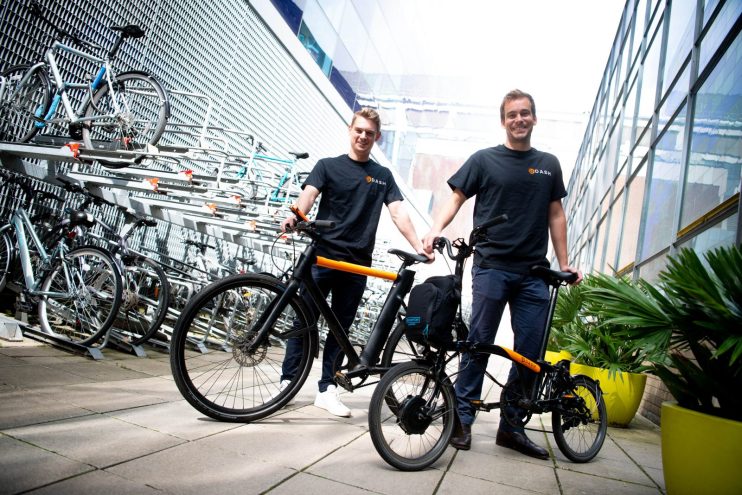EV and low emission zones are not a panacea says e-bike boss

Electric cars are not a “panacea that’s gonna fix everything”, said David Watkins, chief operating officer and cofounder of e-bike subscription service DASH Rides.
“A more sustainable city is not going to be car-focused, even if that car is an electric vehicle,” he told City A.M. “We need to move to a different way of people moving around cities”.
Commenting on the extension of London’s ultra low emission zone (ULEZ), Watkins said that measures such as this are a good way forward but “there’s still a long, long way to go”.
Watkins believes that tomorrow’s extension – which will incorporate the North and South circular roads – will have a material impact on the quality of air but won’t fix all of London’s environmental issues that are related to transport.
“Emission regulation is focused on tailpipe emissions and exhaust gases that are coming out of cars,” he said. “While it’s a step in terms of cleaner gas and exhaust gases, there is still a huge amount of particulate emissions that are caused by tire and brake dust.”
Just like the pandemic, the extension of ULEZ is expected to act as a catalyst, obliging people to rethink their transport habits. According to digital bank Zopa, ULEZ and clear air zones (CAZ) could end up costing city drivers £40m in London and Birmingham alone, City A.M. reported.
“Now is the time for motorists to get out the calculator and see how the new emissions charges might affect their finances,” said Zopa’s chief commercial officer Tim Waterman.
“Upgrading your car to a newer used, compliant model will allow drivers to avoid the daily charges, but also ensure they’re doing their bit to keep emissions down in their local area.”
The UK is leading the way in terms of preparedness to adopt electric vehicles (EV) and go fully green.
Driving education provider Zutobi revealed in a research that Britain is second when it comes to the number of EVs registered, while taking the lead in terms of EV searches for 100,000 people.